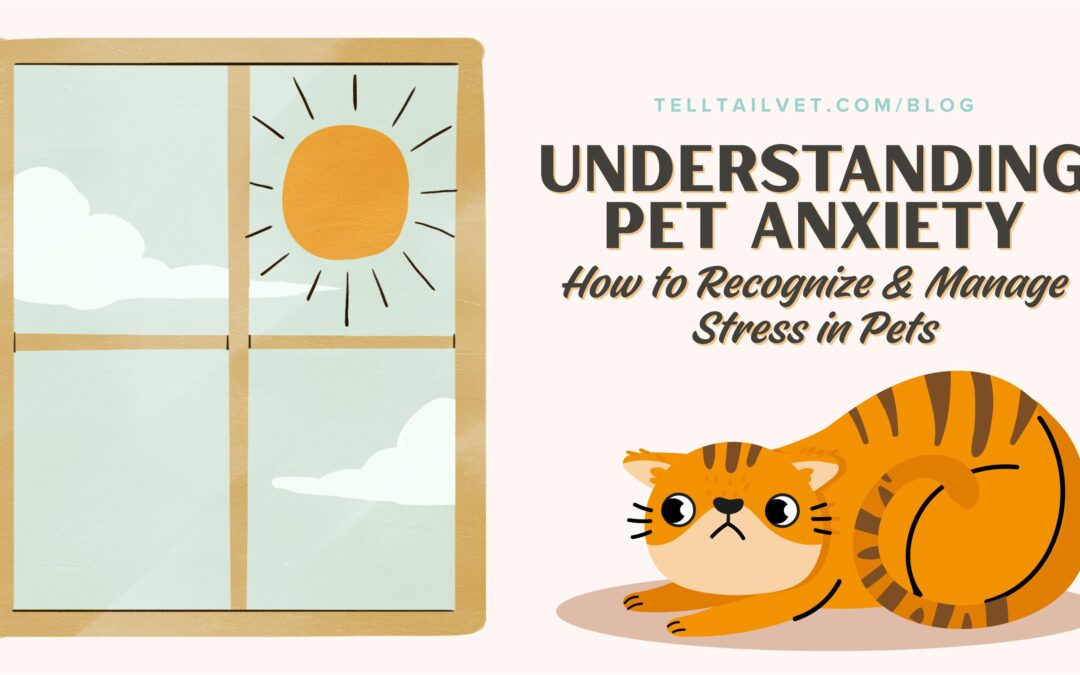Just like people, pets can feel anxious in certain situations. Loud noises, unfamiliar visitors, or changes in routine can cause stress for both dogs and cats. Around holidays like Halloween, with doorbells ringing, costumed strangers, and sudden noises, it is especially important to understand how to recognize and manage anxiety in your pet.
Signs of Anxiety in Pets
Anxiety can look different from one pet to another. Common signs include:
-
Excessive panting, drooling, or trembling
-
Pacing or restlessness
-
Hiding or trying to escape
-
Destructive behavior, such as chewing or scratching
-
Excessive barking, whining, or meowing
-
Changes in appetite or bathroom habits
Recognizing these early signs allows you to step in before stress becomes overwhelming.
Helping Pets Cope With Stress
There are many strategies you can use to help your pet feel safe and secure:
-
Create a safe space: Provide a quiet, comfortable room where your pet can retreat when things get overwhelming.
-
Stick to routines: Pets thrive on predictability, so try to keep feeding, walking, and play schedules consistent.
-
Exercise beforehand: A walk, game, or play session before the excitement starts can help burn off nervous energy.
-
Distraction tools: Offer puzzle feeders, toys, or calming music to redirect their focus.
-
Limit exposure: If your pet struggles with visitors or trick-or-treaters, consider keeping them in a secure room away from the front door.
Additional Support Options
Some pets may benefit from calming aids like pheromone diffusers, wraps, or supplements. In more severe cases, talk with your family veterinarian about options for managing anxiety.
When Anxiety Becomes Urgent
While most stress-related behaviors are not emergencies, extreme anxiety can sometimes lead to injury or dangerous behaviors, such as breaking through doors or refusing food and water. If your pet experiences severe symptoms, we are here for urgent needs.
Tell Tail Veterinary Urgent Care is open Monday through Friday, 8 AM to 6 PM. If your pet experiences an emergency outside our hours, please visit your nearest emergency hospital.


